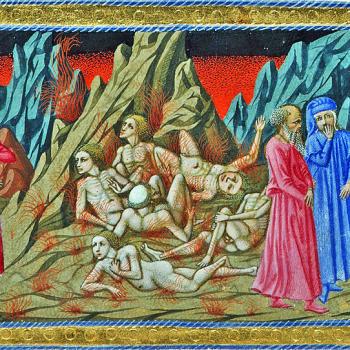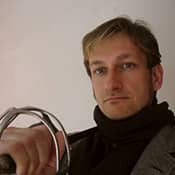Common misconceptions: Brighid is frequently said to be the patron of poets, smiths and healers because of a line in one manuscript that is taken too literally. More consistent with her mythos would be viewing her as the fire that powers all those arts: the flame in the forge, the spark of inspiration, the fire of the life force. (Indeed, she's the mother of several craft deities who actually perform those arts—she gave them life, but does not practice the crafts herself.) Causes related to those three arts should really be associated with their respective craft deities, given below.
Boann
Spirit of the moon, the tracking of time, and the night sky. Strongly associated with cows. Also the spirit of the sacred river of Ireland, the Boyne River, named after her.
Causes: Preserving families and keeping marriages together. Causes related to property rights. Protecting water, especially groundwater and river systems. Protecting cattle. Irish heritage projects. Protecting the Boyne River Valley and the monuments of Counties Meath and Westmeath.
Aengus mac Óg+
Spirit of youth, summer and true love.
Causes: Freeing prisoners. Protecting lovers or promoting the importance of true love. Youth development projects. Safe sex. Opposing puritanical values. Protecting swans and waterfowl. Music. Causes related to foster children. Opposing proselytization and religious intolerance. Opposing St. Patrick's Day (Patrick killed Aenghus' foster daughter.) Bringing delight.
Nuadu, a.k.a. Nechtan+
Spirit of water. Appointed as the High King of the gods. Note the identification with Nechtan is reconstructed and tentative, but they are at least closely related.
Causes: Protecting water rights and clean water. Water accessibility. Developing prosthetics and helping amputees. Training better leaders. Promoting ethics in leadership.
Ogma+
Spirit of eloquence. The champion of the gods. A classic warrior-poet.
Causes: Poetry festivals. Wrestling. Historic martial arts and tournaments. Athletic causes. Messaging and PR for just causes. Potentially, internet technology causes.
Tuireann
The spirit of skill. He is the father of the three primary craft deities, by Brighid.
Causes: Multi-disciplinary art or creative events. Collaborations. Education. Professional training or skills training. Causes that rely on cunning to succeed.
Cú Roí
The warrior spirit of the wild.
Causes: Few causes would match Cú Roí. Although a god, Cú Roí has many of the traits of the giants, and is described as a giant himself. He is crude and antisocial. The best way to honor him might be to stop working for charities and live on the streets as a homeless person, or deep in the woods as a hermit. Giving money directly to a hermit or homeless person—in person, not through a charity—seems fitting.
Causes that protect the wilderness or wolves might also work.
Cailleach
Spirit of winter.
Causes: most of the things Cailleach stands for don't lend themselves well to humanitarian causes, but efforts to fight climate change or preserve the arctic might be a good fit. Promoting fiber arts or helping old women is also fitting.
Crom
Spirit of grain and the harvest.
Causes: This is a hard one. Feeding people seems obvious, but Crom takes human sacrifice. Movements for sustainable agriculture and organic crops—or anything that helps enrich the soil and reduce humanity's impact on it—might be a better fit.
Common misconceptions: A scene in the medieval Life of St. Patrick, which was skewed to call to mind Moloch in the Old Testament, has made Crom the perpetual bogeyman of Irish lore. He probably was given human sacrifice, but the evidence points toward voluntary victims. Early Irish cosmology treats sacrifice as a way of renewing the universe: shifting some of the life force from the human/animal side of the equation back to the elemental side of the equation, so that the natural world does not become exhausted of its ability to nourish us. There is no evidence that human sacrifice was meant to "appease" angry gods; rather, it was more akin to composting the life-force.
Donn
Actually a mortal. The first person to die in Ireland, he was a king who sacrificed himself to save his companions. He was then the first person to reach the afterlife and became the king of the dead.
Causes: Honoring the dearly departed. Geneaology. Protecting or restoring tombs. Protecting the Skellig Rocks off the coast of Ireland.





